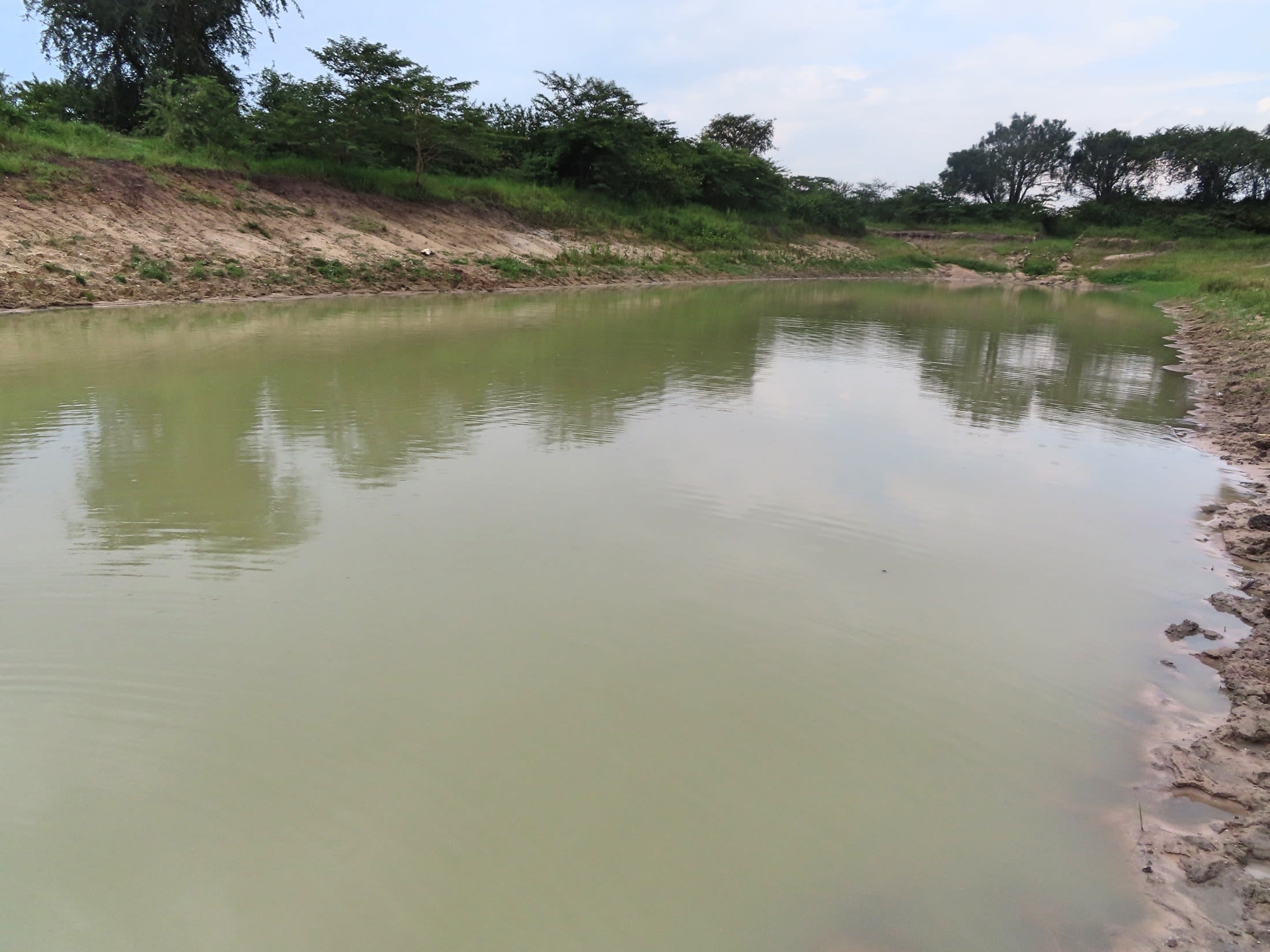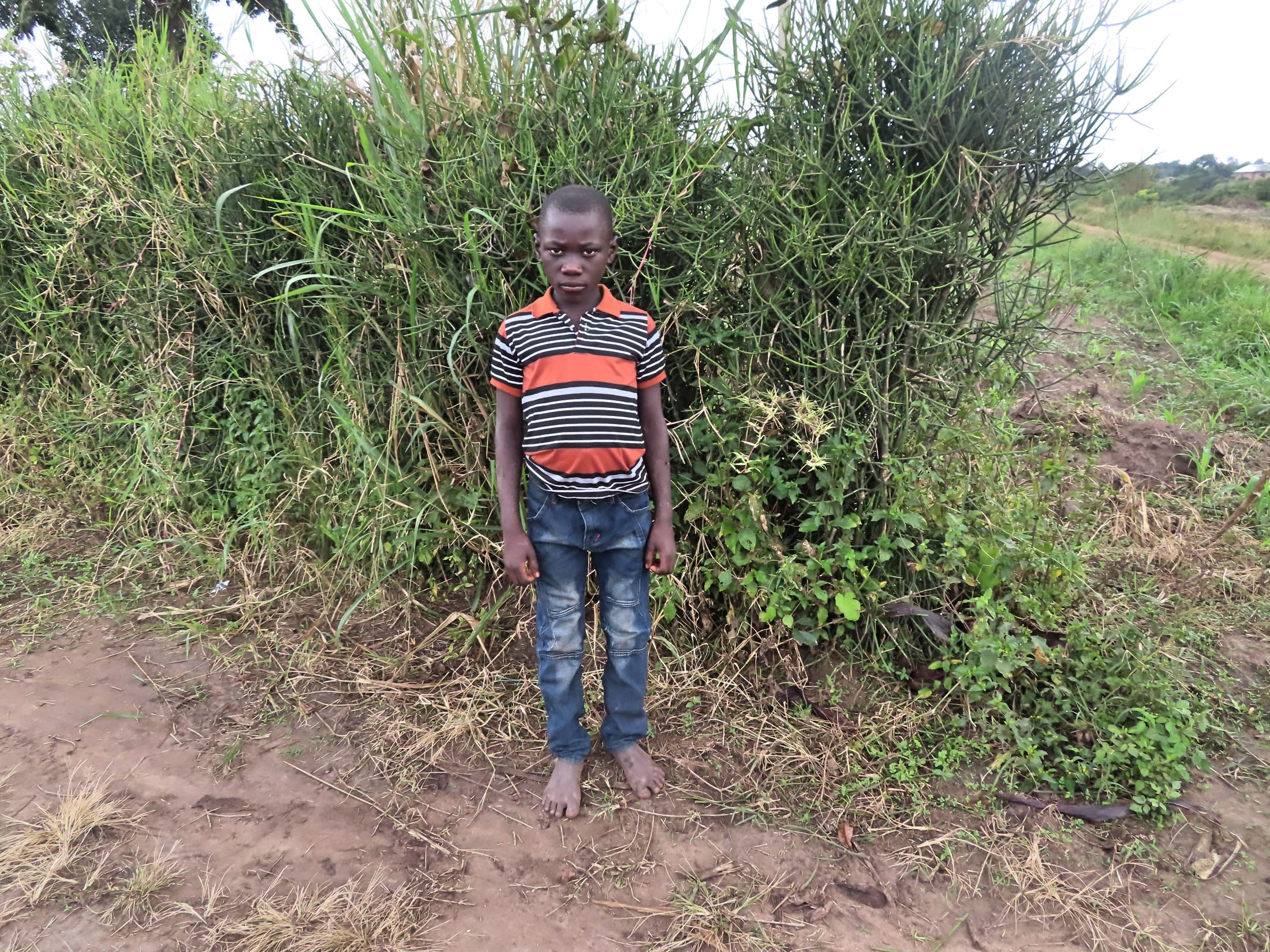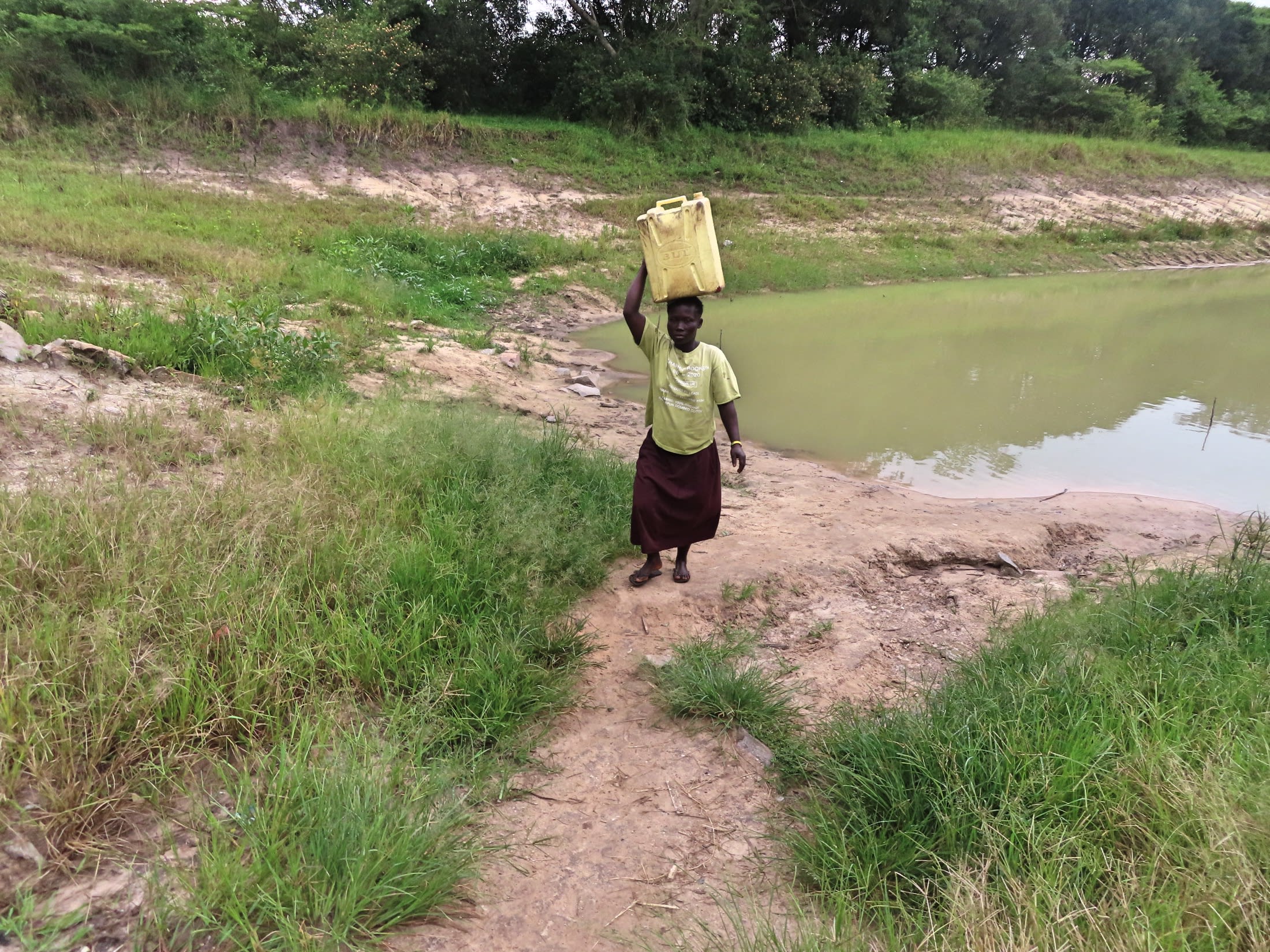Ever since a man drowned in their dam, the 250 people of Rwebigwara won't send their children to fetch water there alone, and for good reason. But they don't have a reasonable alternative water source, so they still collect the water where the man's body floated for three days.

11-year-old Davis T. (shown below) is now afraid to fetch water from the dam. "[The dam is] a dangerous area because we stand high risks of falling in, and if someone falls in, he/she cannot survive because it is very wide and deep," he said.
"The area where we pass to reach the water point is very busy, so we always find snakes on their way to and from the water point, hence creating fear in us. This makes us fail to go to the water point, [and] hence not wash my uniforms sometimes. We go to school dirty, and when this happens, we are always sent back home or beaten by the teachers."

This unfortunate situation begs the question: why is this dam still a popular water source depended upon by many hundreds of people in the surrounding communities? After all, the water is opaque with dirt. The water is continually shared with wildlife and domestic animals, with cow dung splattered along its edges.
But it's still used by many for all their household purposes—including drinking—because the only other choice for water nearby is a crowded community borehole several kilometers away. While this well always yields water, the product is too salty to be really useful for drinking, cooking, bathing, or laundry without a lot of work.
"I collect water from the dam that is shared with the animals," said Grace Atugonza, a 36-year-old housewife and mother of four (shown below starting her journey home from the dam). "The borehole where I would fetch water is [so] salty that it cannot even be used for cooking food because [the food] can't get ready even if you cook it the whole day."

Unsurprisingly, drinking this foul, odorous water has caused health issues.
"I was diagnosed with typhoid last week at Ntooma Health Center 11," Grace said. "[With it] being a government hospital, I was referred to a private clinic to buy medicine. I ended up spending 50,000 USh (Ugandan shillings) for medication, and I just borrowed it from a neighbor, and [I am] now struggling to pay it back. I believe all these issues will be resolved when the proposed borehole is put in place."
Grace's family is close to the dam, so she prefers fetching water there. But Davis's family refuses to use the dam's water for drinking, so he and his family all travel the several-kilometer path to fetch water from the borehole once a week.
"We only collect drinking water on Saturday because the borehole is very far [away]," Davis explained. "This makes us very busy over the weekend, hence affecting our work at home like washing clothes and uniforms because we consume a lot of time. The weekend is for resting and doing school revisions, but we don't get time to rest because we have to collect drinking water."
A new, safe borehole nearer to Rwebigwara will ease the burdens on these community members. With better health, they can yield better crops to better repay their debts. With more time, they will have opportunities to rest, study, and play.
Here’s what we’re going to do about it:
New Borehole
This new borehole is an exciting opportunity for this community! We work with the community to determine the best possible sites for this well.
We conducted a hydrogeological survey and the results indicated the water table is an ideal candidate for a borehole well. Due to a borehole well's unique ability to tap into a safe, year-round water column, it will be poised to serve all of the water needs for this community, even through the dry months.
Community members will help collect the needed construction materials such as sand, rocks, and water for mixing cement. They will also provide housing and meals for the work team, in addition to providing local laborers. We will complement their materials by providing an expert team of artisans and drilling professionals, tools, hardware, and the hand-pump. Once finished, water from the well will then be used by community members for drinking, handwashing, cooking, cleaning, and much more.
Training
Training’s main objectives are the use of latrines and observing proper hygiene practices since these goals are inherently connected to the provision of clean water. Open defecation, water storage in unclean containers and the absence of hand-washing are all possible contaminants of a household water supply. Each participating village must achieve Open Defecation Free status (defined by one latrine per household) prior to the pump installation for this borehole well.
This social program includes the assignment of one Community Development Officer (CDO) to each village. The CDO encourages each household to build an ideal homestead that includes: a latrine, a handwashing facility, a separate structure for animals, a rubbish pit and a drying rack for dishes.
We also implement the Community-Led Total Sanitation (CLTS) approach with each of our village partners. This aims to improve the sanitation and hygiene practices and behaviors of a village. During these sessions, village leaders naturally emerge and push the community to realize that the current practices of individual households – particularly the practice of open defecation – are not only unhealthy, but affect the entire village. CLTS facilitates a process in which community members realize the negative consequences of their current water, sanitation and hygiene behaviors and are inspired to take action. Group interactions are frequent motivators for individual households to build latrines, use them, and demand that other households do the same.
Improved Sanitation
The aim is that all households own an improved latrine. Many households do not use a latrine but use the bush. Due to open defecation, feces are spread all over the village. This leads to waterborne diseases and contamination of groundwater and surface water. Our aim is that the community is able to live a healthy life free of preventable diseases. We endeavor that at the end of our presence in the community, people will have both access to sustainable, clean water and access to sanitation. We have now organized families to form digging groups for latrine construction, and empowered them with tools to use.





 Borehole Well and Hand Pump
Borehole Well and Hand Pump
 Rehabilitation Project
Rehabilitation Project























